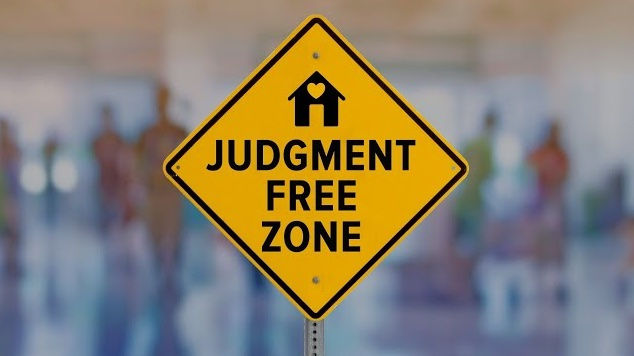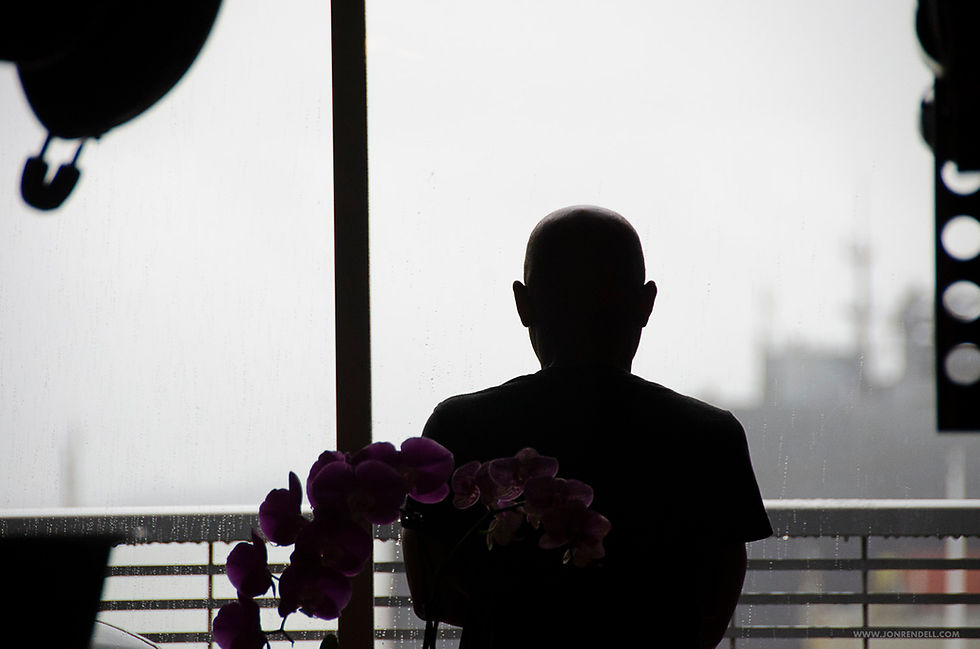Judging Others
- Sep 29, 2024
- 6 min read

Would you consider yourself to be judgmental of others? I grew up learning to not be judgmental of others but the feeling creeps in when I am not thinking about it or seeing the world with an open mind. My partner surprised me one day when they pointed out how fast I can judge someone without being aware of it. Once it was brought to my attention through a heated discussion over lunch, the lightbulb in my big head went on and I felt embarrassed and ashamed for going against lessons learned in my life.
Judging others is something we all do, often, without even realising it. Whether it’s a passing thought about a stranger’s outfit or a more deeply rooted opinion about the colour of someone's skin, or a colleague’s behaviour, our minds are quick to form conclusions. But why are we so inclined to judge and how do these judgments affect our relationships and our well-being? In this post, we’ll explore the reasons behind our tendency to judge others, the impact it can have, and how we can shift toward a more empathetic, open-minded approach in our daily lives.
Even when shopping for food or entering a new restaurant, we tend to make judgments about the servers, the food, the atmosphere, and even observing their clientele. Judging others often makes us feel a fake sense of superiority. Tearing other people down is one of the most common ways people prop themselves up. By judging others harshly, we compare ourselves to them and feel better than someone else. We often will tell ourselves that compared to their lives, their behaviour, their body shapes, or the backpacks they are carrying, we tell ourselves that we look pretty good in comparison. It's amazing how so many things can jump around in our heads.
Why do you think that we make judgments based on someone's appearance? From a young age, we are taught that certain physical characteristics are more desirable than others. For example, when we browse through any magazine, the silent message to boys, girls, men, and women is always the same, telling us that we are not thin enough, not pretty, or handsome enough. When I think back about my youth, I was always judged by others, even if they looked like me. I can remember hearing other students calling me shorty, or commenting about my red hair and later my big afro that blocked others from seeing the work on the blackboard in my classrooms. As a man, every job interview scared me because of the colour of my skin. As a short, Black man, regardless of my work qualifications, I expected to be denied the opportunity to excel. When I entered the interview room, those conducting the session or interrogation had a difficult time removing the look of disappointment from their faces once I entered. Judgment plays a key role in healthcare, housing, and education. It took me many years to understand the process. As I matured, I stopped caring and decided to turn the tables and question those on the panel about their careers and to tell me why someone would want to work with them or join the company. This always caught panelists off guard as they hesitated and stumbled around in their search to find a suitable answer.
My favourite job interview was with a team of people that interviewed me several times via conference calls, asking lots of questions. After 4 phone interviews with them, I finally received an invitation for a face-to-face interview. The look on their faces still makes me laugh out loud today. The panel was made up of men and women of all colours. The look of hatred that I received from the Black woman gave me the strength to put on a show. As we went through a series of difficult questions, I found delight in being able to respond as a professional in the field. Finally, I became bored and started to ask each of them questions. Each of them was shocked, the Black woman looked annoyed as she cut her eyes at me, showing her disapproval. That was my sign to continue. Finally, I stood up and voiced my opinion about what they were looking for and it wasn't a black man or any person of colour. Then I stopped the interview and confirmed that I was not the person they sought or someone to control. I told them I would not be interested in working with any of them. As I walked out, they all looked shocked.
When I worked in DC, judging people seemed to be a part of the rules. As college/university students appeared for internships, I was alerted that the receptionist would place a sticker on the back of their resumes using only one word, 'Yes or No'. Students of colour or ones that weren't dressed well enough from the receptionist's point of view, received a 'No' sticker. Instead of being judgmental, I asked a series of questions about their lives. Most of the rejects shared their stories. As a result, I took most of them under my wing and helped them prepare for their internship opportunity. They were very intelligent and eager for the experience.
Judging others is a natural human tendency influenced by a variety of psychological and social factors. Here are a few reasons why it's part of our nature to judge others:
Social Comparison. We often compare ourselves to others to evaluate our worth, abilities, or status. Judging others can make people feel more secure about their position by perceiving themselves as better in some way.
Survival Instinct. In early human history, quickly assessing others for potential threats or alliances was crucial for survival. Even today, this instinct to evaluate others for safety, trustworthiness, or compatibility remains strong. I can still hear my mother talking to me and my siblings about surviving in a cruel world. We learned about the differences between a colleague, an acquaintance, and a true friend.
Mental Activities. Our brains categorize people and situations to make sense of the world. Judging others allows for quick decision-making without spending time analysing every detail of a person's character or behaviour. Usually, the assessment is false or unreliable without knowing the person being judged. Here is a test for you to try at home. Once you kick off your day, stand in front of a mirror, preferably a full-length one, and look at yourself. Now judge the person that you are staring at. Now, pretend you don't know the person in the mirror, take note of how you are judging that person.
Social Conditioning. Society often teaches us certain standards of behaviour, appearance, and success. Judging others helps reinforce these norms, and stepping outside of them can unfairly invite criticism from others.
Self-Defence. Often, we judge others to protect our vulnerabilities. By focusing on the flaws of others, it can be easier to avoid facing one's insecurities or weaknesses. In all honesty, we all have weaknesses.
Belonging to a Group. People judge others to reinforce a sense of belonging within a particular group. By identifying those who are different or 'other,' individuals strengthen their connection to their social group. Every day in world news, one group hates another group because of their religion, their political views, the communities they live in, if they are male, female, transgender, or a member of the LGBTQI+ community, and of course, for the colour of their skin.
Feeling Superior. Sometimes we may feel that judging others can provide a feeling of moral superiority. Doing this is a way to affirm our self-value and feel justified in our actions and beliefs, although we may never admit it verbally.
Once we understand why we judge others, it can be the first step in reducing it, creating empathy, and promoting more healthy and mindful interactions with ourselves and others. Being able to recognise that we can be judgmental is the first step towards making internal changes. Trust me, it's not an easy task because we have been doing it most of our lives. Early in life, young boys and girls love playing games and hugging each other. When riding on public transportation, babies and young kids love playing or chatting with me. Often it makes parents friendlier. Children can pick up negative racial stereotypes by the age of six. They learn it by observing their parents, family members, and friends. Everyone, deep down inside, wants to be a part of a larger group that thinks and looks the same way. Sadly, it's one explanation for global racism and discrimination.
Those with a higher level of emotional intelligence are often more aware of their own biases and judgments, making them more likely to withhold judgment and approach others with understanding. People who have faced judgments most of their lives may be more empathetic and less inclined to judge others. On the other hand, some people may become more judgmental as a defence based on past experiences. It has been proven that communities that focus on competition, status, or conformity may foster more judgmental attitudes, while cultures that value diversity and individuality may encourage acceptance. Frankly, I believe that we are all more alike, regardless of the colour of our skin.
One of the greatest life lessons that I learned to believe is, "Do not judge by appearances, a rich heart me be under a poor coat." The first time I heard the words flow from my mother's lips, I knew it was true.








Comments